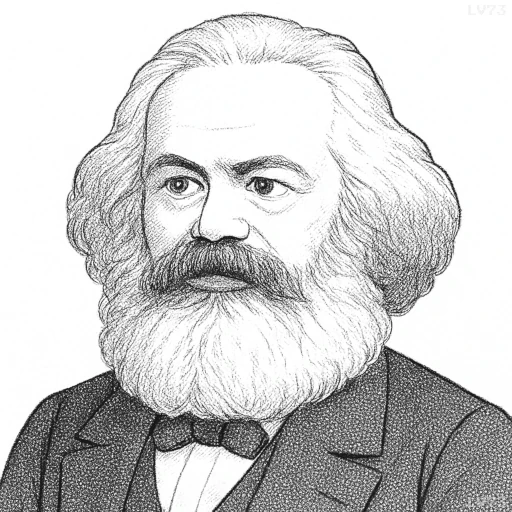“The only antidote to mental suffering is physical pain.”

- May 5, 1818 – March 14, 1883
- Born in the Kingdom of Prussia (Germany)
- Philosopher, economist, political thinker
table of contents
Quote
“The only antidote to mental suffering is physical pain.”
Explanation
In this quote, Marx reflects on the relationship between mental suffering and physical pain. While the statement might seem paradoxical or extreme, it can be understood within the context of alienation and the dehumanizing conditions of life under capitalism. Marx often discussed how capitalism leads to alienation—the separation of individuals from the products of their labor, from each other, and from their own human essence. This alienation can lead to mental suffering, such as feelings of powerlessness, frustration, and isolation. Marx may be suggesting that in such a system, physical pain—a more direct, visceral experience—might momentarily distract from the mental anguish of existing in a system that exploits and degrades the individual. In this sense, physical pain could serve as an immediate release from the complexities of mental suffering, if only temporarily.
Historically, this quote can be seen as a critique of the alienation experienced by the working class under capitalism, where people are reduced to mere cogs in the machine, performing repetitive, exploitative labor with little control over their own lives. The resulting mental suffering, such as feelings of inadequacy, frustration, or lack of fulfillment, could be overwhelming. In this context, physical pain might offer a form of escape, because it pulls the individual away from the weight of their mental distress. Marx’s idea reflects the dismal reality of a system in which people may find themselves trapped between mental despair and physical suffering, both rooted in alienation from their true selves and from meaningful work.
In modern terms, this quote can be connected to discussions about mental health, workplace stress, and the pressures of modern capitalist life. In many societies, the rise of work-related stress, depression, and mental illness can often be linked to the alienating and exploitative nature of labor under capitalism. People often experience mental suffering in response to economic inequality, job insecurity, or lack of autonomy in their work. In such cases, individuals might turn to physical means—whether through substance abuse, addiction, or even self-harm—as a way of coping with the mental strain of their lives. Marx’s quote underscores how the economic system creates such deep alienation and despair that people might resort to physical pain as a temporary release from their emotional or psychological distress, pointing to the need for social transformation that addresses both mental and material suffering.
Would you like to share your impressions or related stories about this quote in the comments section?
